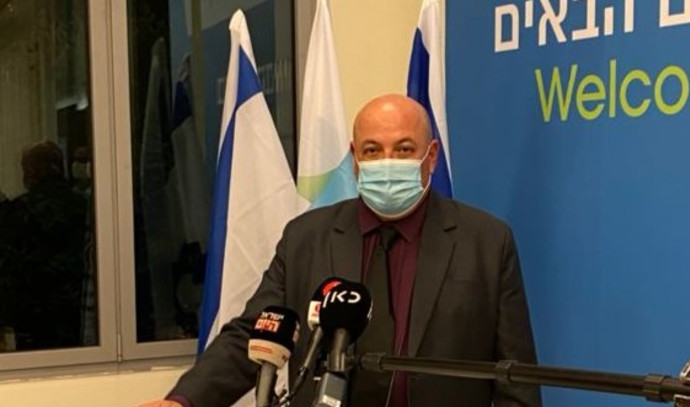Corona virus morbidity data are not declining significantly despite the closure and vaccination campaign, and this is a matter of great concern among Ministry of Health officials. Tonight (Wednesday) Ben Caspit and Prof. Aryeh Eldad spoke with the Deputy Director General of the Ministry of Health, Prof. Itamar Grotto, in their program on 103FM, where Grotto explained what the ministry’s demand is to extend the closure for at least another week. Which is spreading in Israel, and reports that the mutation is more contagious among children.
Mercury: There is a beginning of hints as one begins to see the curve go down in the number of severe patients. Do you approve?
“You could say that there is a stabilization, but the numbers are still high, 150 a day, both yesterday and Tuesday. We see a moderation in the age of the patients.
Prof. Eldad: If the R is less than 1, we should have seen a decrease immediately, right? A week has passed and we do not see redemption.
“True. We see an average of a week that overall it goes down very little, but the decrease of 0.9, definitely still high numbers. Not on us, we did not pass the 10,000 and there is an effect of the closure that decreases and it could be that without a closure we would get higher numbers.” .
Is it closed?
“Not closed but there are actions anyway. The education system is closed, there is a decrease in motility indices. There is an effect, there is a combination of mutation and a virus that spreads faster and an incomplete closure. Both phenomena cause stabilization in R but not enough for decrease.”
Mercury: How do you interpret the headline that a third of the new patients in this round are under 17 years old.
“We see that the mutation is probably more contagious in children, and in everyone in general. Children are a population that is most contagious in infectious diseases. Definitely a problematic issue in light of the fact that we can not vaccinate them.”
Mercury: Do you see it in serious illness as well?
“There is also an increase in the number of severe young patients under the age of 60, less under the age of 40. At the same time we have also seen pregnant women, this is mainly due to the amount of numbers that has increased. If more women are infected then also pregnant women.”
Prof. Eldad: Pfizer or Modern are conducting an experiment on children?
“Pfizer is performing for a young age, age 12, but that still won’t give us an answer about the younger kids.”
Mercury: Does the Ministry of Health support extending the closure? Prof. Eldad: In England it is until March, maybe we need to extend in advance?
“In a week in the first phase, according to regulations and laws the government is authorized to approve only for two weeks, this is what happens within the law. Because the situation is so dynamic, it is clear we will not go for 4-3 days because we see how complicated it becomes to pass a closure decision. “We are different from the UK because we have a significant mass of vaccinated and I hope that will make an impact.”
Mercury: Vaccinated in the second dose that occurred, what is known about it?
“Overall, the vaccine seems to be working very well, the numbers of those who fell ill after completing the series are really low. This indicates that individuals develop the disease after receiving the second dose. On the other hand, quite a few people became infected after the first dose, apparently confident and stopped following the rules. Then there is infection. “
Prof. Eldad: From Maccabi’s data, it turns out that they were not really sick but suffered from mild symptoms.
“It is possible, as with the flu vaccine, that the vaccine does not protect against infection but protects against complications, so here too it can be. The question is whether those people are infected and here we are in a situation where it is a bit difficult to predict whether they are contagious. .
Mercury: The closure is crumbling, maybe it’s time to think differently? Another idea? another solution? Or is there no choice?
“I think we do not have magic tools up our sleeve, but I think we have accumulated enough vaccines. It will be possible to think of opening even if the number of patients does not decrease so fast, but as long as the number of patients falls we can think differently. “I assume we will have a better predictive option for the number of difficult patients, so we need to see the beginning of a significant decline to be sure to go ahead and open up. The opening should also be done very carefully.”
